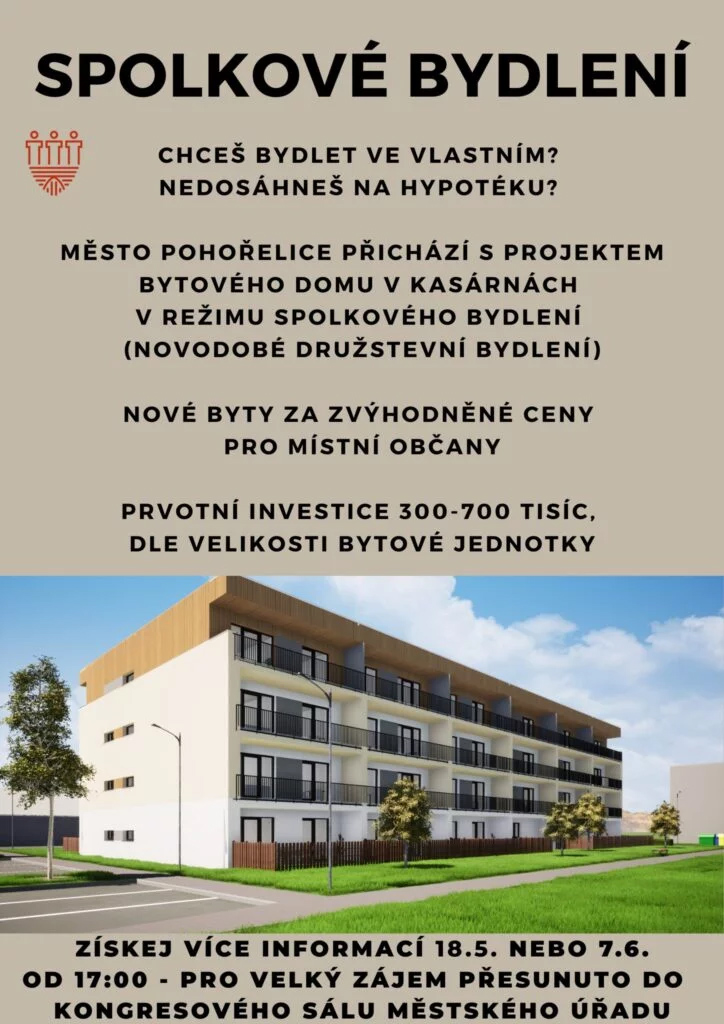
The Housing Support Act will go into public consultation next week
 |
Bartoš's predecessor and current Deputy Speaker of the Chamber Klára Dostálová (ANO) stated that the situation regarding housing affordability is more than alarming. Bartoš also confirmed that there is a housing crisis in the country. Both agreed that the situation can only be addressed through a combination of various tools, not just by changing laws.
The proposed law on housing support has already undergone the regulatory impact assessment process, and its paragraph wording is ready, Bartoš said. According to MMR, the law is intended to offer municipalities a set of optional measures that will allow them to address the needs of their residents in accordance with their requirements. The law is set to support various forms of counseling at contact points, private sector housing using guarantees for landlords, and motivating municipalities to develop their municipal housing stock.
"We can definitely support this norm if we are involved in its creation at all,” said Dostálová to ČTK and Czech Television. If the law's creation proceeds in such a way that the MPs from ANO only learn about the paragraph wording and prepare comprehensive amendment proposals, then this is not the right path, according to the former minister. The most pressing issues should be discussed among participants before the proposal goes for approval, she stated. According to her, this would also facilitate discussions in the Chamber.
Bartoš pointed out that there is no universal solution for achieving greater housing availability and that it will always be a matter of a set of tools, laws, and the will of politicians. Among other things, he wants to offer municipalities investment tools and also provide them with the necessary knowledge to implement housing projects. In smaller municipalities, it is not realistic for them to have their own teams to calculate investments, he believes.
Dostálová suggested options for solutions, such as a new delineation of powers for regions and municipalities or the return of the institution of permanent and temporary residence, which she believes could assist in fighting poverty. According to her, support is deserved for both ownership and rental housing, as well as cooperative construction. She believes that allowing the division of multi-generational houses to create two housing units would have a significant effect. "Many young families would choose this form of housing," she noted. She also mentioned multi-generational mortgages as another potential solution.
Direct solutions to housing distress according to the MMR model amount to approximately 2.5 billion crowns. Indirect costs are difficult to quantify, but the estimate for state costs is about four times higher, Bartoš stated. Housing distress in the sense of social housing, where citizens need immediate housing assistance with guarantees, concerns approximately 154,000 people, according to Bartoš.
The Constitutional Court warned in early May that uncertainty associated with housing may threaten people’s confidence in a democratic rule of law. The Czech Republic lacks a law on social housing, said the court. According to it, this is a long-term unsustainable situation that contradicts the country's international commitments.
The English translation is powered by AI tool. Switch to Czech to view the original text source.
0 comments
add comment
Related articles
0
16.04.2025 | Experts welcome the adoption of the housing support law, they wanted a more progressive form
0
21.02.2025 | The Lidovci will demand an increase in the allocated amount for the construction of affordable housing
0
07.02.2025 | Support for the construction of affordable housing has been requested by 92 projects for CZK 5.1 billion
0
26.10.2024 | About the funding for the construction of affordable housing, 70% of municipalities are interested
0
05.09.2024 | The Committee for Public Administration has suspended the discussion on the housing support bill
0
04.09.2024 | Bartoš does not expect that the government would not release funds for the construction of affordable housing
0
25.07.2024 | The government approved a program to support investments in affordable housing
0
12.06.2024 | The government approved the law on housing support, which is meant to protect people at risk of housing distress
1
17.05.2024 | Bartoš believes that the government will ultimately approve the housing support law
0
15.05.2024 | The government today interrupted the discussions on the housing support law, discrepancies persist
0
04.05.2023 | In the Czech Republic, according to the Constitutional Court, there is a lack of a law on social housing; it is said to be an unsustainable situation
0
11.10.2018 | Dostálová: Preparations for the housing law would delay assistance
0
30.12.2016 | MPSV must submit the law on social housing
0
07.06.2016 | The Ministry of Regional Development has more than a billion for the support of social housing
0
12.04.2016 | Social housing needs at least 181,000 households
0
22.09.2015 | <MPSV>Investment in the creation of social housing would be 3 billion per year</MPSV>
0
07.04.2014 | The Social Housing Act could be adopted sooner than in 2.5 years












